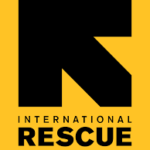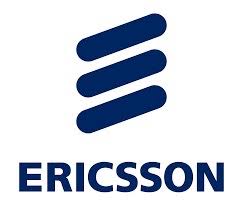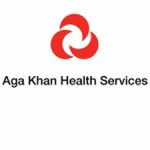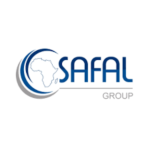
The International Rescue Committee (IRC) responds to the world’s worst humanitarian crises, helping to restore health, safety, education, economic wellbeing, and power to people devastated by conflict and disaster. Founded in 1933 at the call of Albert Einstein, the IRC is one of the world’s largest international humanitarian non-governmental organizations (INGO), at work in more than 40 countries and 29 U.S. cities helping people to survive, reclaim control of their future and strengthen their communities. A force for humanity, IRC employees deliver lasting impact by restoring safety, dignity and hope to millions. If you’re a solutions-driven, passionate change-maker, come join us in positively impacting the lives of millions of people world-wide for a better future.
The International Rescue Committee responds to the world’s worst humanitarian crises and helps people to survive and rebuild their lives. Founded in 1933 at the request of Albert Einstein, IRC offers life-saving care and life-changing assistance to refugees forced to flee from war or disaster. At work today in more than 40 countries and in 22 U.S. cities, IRC restores safety, dignity and hope to millions who are uprooted by conflict or disaster. IRC leads the way from harm to home.
Contextual Background
The IRC has been present in Nigeria since 2012 were we responded to flooding in Kogi state and expanded since then, the IRC has expanded its humanitarian operations from 2014 across Northeast Nigeria’s to Borno, Adamawa, and Yobe (BAY) states by providing humanitarian interventions through a multi-sectoral, integrated approach for conflict-affected populations. In 2022, IRC expanded to the Northwest, responding to displacement and food insecurity in Zamfara, Sokoto and Katsina. IRC Nigeria now operates a country office in Abuja and field offices in Mubi and Yola of Adamawa State, Maiduguri, Monguno, and Gwoza of Borno state, Damaturu in Yobe State, Gusau in Zamfara State, and Katsina in Katsina State of Northwestern Nigeria.
The IRC Nigeria country program is implementing multi-sectoral interventions in the sectors of Health and Nutrition, Environmental Health/WASH, Child Protection, Education, Women’s Protection and Empowerment, Economic Recovery and Development and Protection Rule of Law with Governance and Systems Strengthening programming cutting across all outcomes and projects, in partnership and close collaboration with Government Agencies and National Organizations.
Job Overview/Summary
The Governance Officer is responsible for implementing and monitoring program activities ensuring power integration in the SIDA Partnering for Resilience to Emergencies through Transformation of Sexual Reproductive Health and Right (PRET-SRHR) Project. S/he will champion the Health System Strengthening (HSS) Component of the project and support the project team to ensure activities run smoothly by ensuring inter-sectoral Coordination, training, and capacity sharing with stakeholders at both Government and Community levels. S/he will play an active role in establishing and managing relationships with local partners, humanitarian actors, State authorities, beneficiaries, and local/traditional leaders and contribute to the achievements of IRC Nigeria Strategic Action Plans (SAP).
Major Responsibilities
Project planning and implementation
- Strengthening the capacity of the health systems to deliver rights-based SRH services that are resilient in the face of conflict and disaster in fragile settings
- Conduct Organizational Development (OD) to Health institutions – facilitate a participatory process to identify and prioritize actions to improve capacity, systems, and coordination of the institutions in relation to Sexual and Reproductive health and right.
- Carryout major Capacity strengthening activities for and with community, Local government and State government on various topics covering the gaps identify from OCA.
- Contribute and support effective monitoring, evaluation and learning processes and initiatives, and ensure effective data and information management for the SIDA PRET project.
- Ensure synergy and coordination of Governance programming with other IRC sectors activities in Borno State, in close coordination and consultation with other Governance staff and other sectors.
- Integration of gender sensitivity, social accountability, and governance approaches that will ensure that program activities are inclusive, contextually relevant, and aligned with community needs, enhancing the development of responsive and impactful programs.
- Facilitate workshops and engagement meetings that will ensure coordination between local and national actors, fostering a cohesive approach to emergency management and governance.
Reporting and documentation
- Ensure timely and quality delivery of weekly, monthly, quarterly, and annual project reports.
- Ensure high-quality IRC and donor reports on activities, indicators, and achievements.
- Ensure that all reporting is disaggregated by age and gender.
- Keep proper records of all project activities.
Team Management
- Create and sustain a work environment of mutual respect where team members strive to achieve excellence.
- Promote accountability, communicate expectations, and provide constructive feedback to the team members.
- Contribute to IRC Governance sector team-building efforts, support in solving arising problems and support the integration of all team members into relevant decision-making processes.
Finance & Compliance Management
- Ensure full compliance with IRC and donor financial guidelines and policies while managing the Governance Sector project.
- Support Governance Manager in developing Quarterly spending plans.
Logistics, Procurement, Safety And Security
- Develop procurement plans and item forecasts in consultation with the Governance Manager and coordinate with the Monguno based Supply Chain Focal Person for the delivery of items to the field as per project planning.
- Ensure compliance with security management rules and procedures.
- And all other duties as assigned by the supervisor.
Key Working Relationships
Position Reports to: Governance Manager, based in Maiduguri
Indirect/Technical Reporting: Governance Coordinator, Field Coordinator Monguno
Position directly Supervises: None
Key Internal Contacts
- Country Program: N/A
- Region/Global: N/A
Key External Contacts
- External: Service providers, Traditional and Community Leaders, Local Government Authorities, Government Ministries/Agencies, Community Volunteers, and CSOs working in project communities.
Minimum Qualifications:
- Education: University degree or HND in Humanitarian studies, Political science, psychology, Geography, social sciences, Education, Law, Agriculture, or social work.
Work Experience
- Minimum of 3 years of working experience in Governance programming with a focus on developmental programming, climate change, and peacebuilding.
- Experience In conducting Organizational Development and Implementing Organizational development plans will be an added advantage.
- Experience of coordination and engagement with stakeholders at both community and government levels. Skills in advocacy essential
Demonstrated Technical Skills
- Ability to function in a team, especially field teams in a challenging environment
- Ability and willingness to live and work in a challenging environment
- Good communication skills (written and verbal), cultural sensitivity, flexibility, ability to improvise, team player.
- fluency in English and Hausa languages, fluency in Fulfulde is a plus.
- Strong computer skills required (word and excel and PowerPoint).
Languages: English (Hausa and Kanuri will be prioritized)
Computer/Other Tech Requirements
- Full professional competency in Microsoft Office Suite, especially Word, Excel, Outlook, and PowerPoint.
Ability to Travel: 10%









